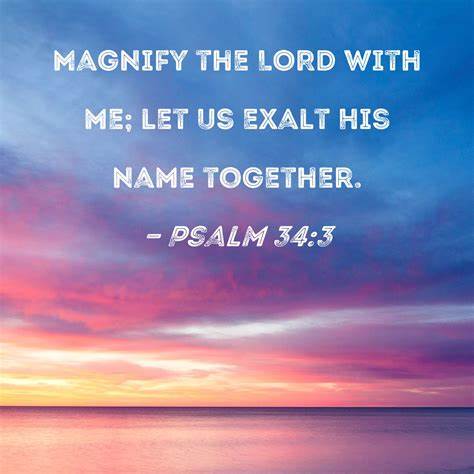THE SEED
“Oh, magnify the Lord with me, And let us exalt His name together. I sought the Lord, and He heard me, And delivered me from all my fears.” Psalms 34:3-4 NKJV
Gratitude for answered prayers is a sweet sacrifice to the Lord and a stronghold of our faith. The above Scripture verses focus on celebrating the acknowledgement of God’s responsiveness: “I sought the Lord, and he answered me; he delivered me from all my fears.” It reflects the joy of recognising God’s faithfulness in responding to our prayers and calling on other people to join us to celebrate His faithfulness. It’s an acceptable culture to present our request before God mixed with gratitude for already answered prayers. In our journey of faith, it’s important to cultivate a habit of acknowledging God for His responses. When prayers are answered, we are called to an obligation of gratitude, to give thanks because we can see His hand at work. This acknowledgment not only deepens our connection with God but also aligns with His desire for us to be thankful in all circumstances (1 Thessalonians 5:18). As we witness our prayers being answered, let’s echo the Psalmist’s feelings, Let our hearts overflow with gratitude, remembering that every answered prayer is a manifestation of God’s love and faithfulness. In the rhythm of prayer and thanksgiving, we find a pleasant relationship with God who hears and responds to the cries of His children.
BIBLE READING: Psalms 34:1-5
PRAYER: Lord, with a grateful heart, I say thank you in gratitude for all my answered prayers, in Jesus’ name. Amen
NINI OYE PE ỌLORUN LO N DAHUN ADURA
IRUGBIN NAA
“Ẹ gbé Oluwa ga pẹlu mi, Ẹ jẹ ki a jumọ gbe orukọ re ga. Mo wá Olúwa, ó sì gbọ́ tèmi, ó sì gbà mí lọ́wọ́ gbogbo erù mi.”
Didupe fun idahun Adura jẹ ẹbọ didùn si Oluwa ati odi agbara igbagbọ wa. Àwọn ẹsẹ Ìwé Mímọ́ tí ó wà lókè yìí dá lé lórí ṣíṣe ayẹyẹ ìfọwọ́sowọ́po ìdáhùn Ọlọ́run: “Mo wá Olúwa, ó sì dá mi lóhùn; ó gbà mí lọ́wọ́ gbogbo erù mi.” Ó ń ṣe àfihàn ayo mímo ìṣòtítọ́ Ọlọ́run ní dídáhùn sí àdúrà wa àti pípe àwọn ènìyàn míràn láti darapo mọ́ wa láti ṣayẹyẹ ìṣòtítọ́ re. O jẹ aṣa itẹwọgba lati ṣafihan ibeere wa niwaju Ọlọrun ti o dapọ mọ ọpẹ fun awọn adura ti o ti dahun tẹlẹ. Ninu irin-ajo igbagbọ wa, o ṣe pataki lati mu iwa jijẹwọ fun Ọlọrun fun awọn idahun Rẹ. Nigbati awọn adura ba gba, a pe wa lati dupe nitori a le rii ọwọ Rẹ ninu aye wa. Sise eleyìí ko ni mu ki ibasepo wa pelú Ọlọ́run jinle si nìkan ṣùgbọ́n ó tún bá ìfẹ́ Re mu fún wa láti dúpẹ́ nínú gbogbo idojuko wa (1 Tẹsalóníkà 5:18). Bí a ṣe ń rí ìdáhùn sí àdúrà wa, ẹ jẹ́ kí a sọ àwọn ìmolára Onísáàmù, Jẹ́ kí ọkàn wa kún fún ìmoore, ní rírántí pé gbogbo àdúrà tí o gba jẹ́ ìfihàn ìfẹ́ àti òtítọ́ Ọlọ́run. Ninu orin ti adura ati idupẹ, a ri ìbasepo didùn pẹlu Ọlọrun ti o gbọ ti o si dahun si igbe awọn ọmọ Rẹ.
BIBELI KIKA: Sáàmù 34:1-5
ADURA: Oluwa, pẹlu ọkan ope, Mo sọ wipe o se fun gbogbo itewogba adura mi, ni orukọ Jesu. Amin
